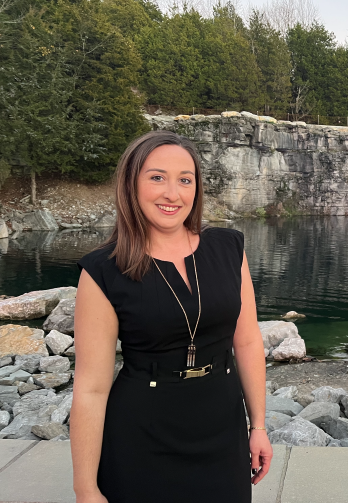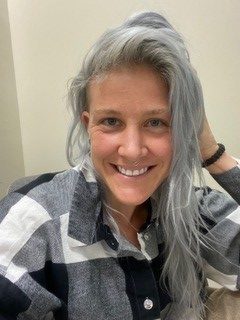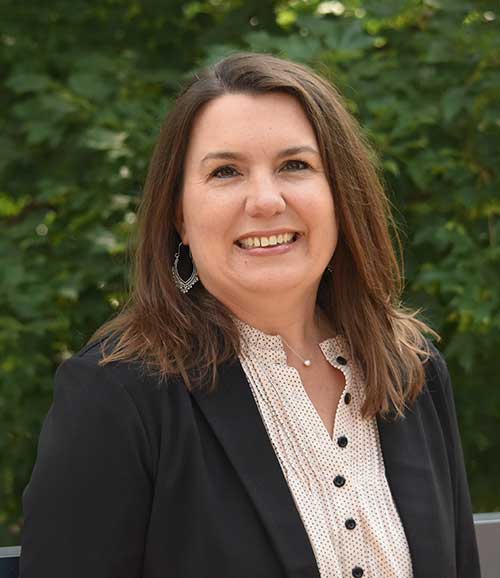In the Spring 2022, CSW launched the Social Work Scholars Research Fellowships, a competitive internal grant program to support highly deserving research projects. All faculty/research staff and students were eligible to submit an application. Major goals of these awards were to assist CSW faculty/research staff with advancing their research programs toward securing external funding (NIH, NSF, Foundation), and to advance students’ research/professional goals.
The following projects were selected to receive funding and many have already initiated the work. We look forward to hearing about the findings from these studies and the projects that they lead to.
Faculty:
Lead Investigator: Linda Daugherty

Including non-human family members in community health assessment
Companion pet ownership can influence the overall health of their human guardians. Health of companion animals and access to veterinary care can contribute to the wellbeing of families and the entire community. No current assessment of the needs of non-human family members is currently available to help inform local policies and policies for animal welfare agencies. The goal of this study is to develop a cost-effective data collection protocol to be used by health, social service and animal welfare agencies to systematically collect and synthesize available data to assess overall health needs of non-human family members. Data will provide the foundation for grant applications to several animal welfare organizations such as PetSmart Charities and Maddie’s Fund.

Lead Investigator: Mary Held
Collaborating Investigator(s): Abha Rai (Loyola University Chicago)
Risk and protective factors for social integration and emotional wellbeing among Afghan refugees in Illinois and Tennessee
Drs. Held and Rai will conduct a sequential mixed-method study designed to gain insight into experiences of Afghan refugees who have arrived in the United States since August 2021. They will recruit and interview a sample of 120 Afghan refugee adults (18 and older) to investigate risk and protective factors for social integration and emotional wellbeing. In a second phase, they will conduct focus groups with 12 providers to explore provider perceptions of strengths and gaps in service provision and strategies to strengthen interventions for these refugees. Findings from this study are intended to be used in external grant applications to NIH, Russell Sage Foundation, or Robert Wood Johnson Foundation.

Lead investigator: Michael Mason
Collaborating Investigator(s): Nikola Zaharakis, Doug Coatsworth
Treating depression with text messaging
The purpose of the proposed study is to test the feasibility, mechanisms, and efficacy of a text- delivered counseling program to treat depression among young adults. The post study builds on an initial pilot study which demonstrated the feasibility and efficacy in reducing symptoms using a four-week intervention. The proposed study extends the intervention from four to eight weeks to test the longer-term treatment of facts. The study will recruit 100 young adults from across the US via social media and randomly assign them to a group that will receive the text-based intervention immediately or to a waitlist control group that can receive the intervention following completion of a three months post baseline survey. If results from this small scale RCT are positive, they will be strong support for an R01 application to National Institute on Mental Health.

Lead Investigator: Kristen Ravi
Collaborating Investigators: Katherine H. Morgan & Ji Youn Yoo (UT Nursing), Anujit Sarkar (Public Health and Nursing, University of South Florida)
A biobehavioral pilot study to explore the associations between salivary and gut microbiome, sleep patterns, inflammation, and metabolism in children who have adverse childhood experiences (ACEs)
The objective of this study is to explore the associations of childhood stress from ACEs with sleep quality and changes in the oral and gut microbiome, which could increase the risk of inflammation and metabolic disorders in children. The proposed study adds a biological component to an ongoing investigation of ACEs being conducted by Dr. Nan Gaylord in the Vine School Health Center. The proposed cross-sectional study will recruit 75 children (ages 3-12). A case group of children with ACE scores of three or higher will be drawn from the original cohort. A comparison group with ACE scores of 0 to 2 that are age and gender-matched will be recruited from the Vine School Health Center. The study will be the first known to investigate the connection between ACEs, stress, sleep, and the microbiome in children. The team intends to pursue a R01 grant opportunity through NIH or an application to the Robert Wood Johnson Foundation.

Lead Investigator: Nikola Zaharakis
Collaborating Investigator(s): Michael Mason, Doug Coatsworth
Improving intervention engagement, usability, and acceptability toward integrating a mobile health substance use prevention program into federally qualified health clinics
This study partners with Cherokee Health Systems to conduct interviews with staff, parents, and adolescent patients (ages 13-18) to: 1) identify the best ways to recruit and engage parents and adolescents into a text-delivered health promotion intervention targeting adolescent risk for substance use and mental health problems, and 2) to gather information that may improve the usability and acceptability of the interventions. The purpose and design of the study are in response to reviewers’ and a National Institute on Drug Abuse Project Officer’s comments the team received on a R34 application they submitted to NIDA last year. To address these comments, the proposed study aims to generate data that will support the feasibility and acceptability of the intervention and lead to a large Multi-site RCT (R01). The team has identified three funding mechanisms through NIDA and anticipate an application in summer 2023.
Students:

Lead Investigator: Sandra Fortier
Co-Investigators: Elizabeth Strand, Lisa Zotarelli, Madeline Stevens
Active components of values work with adolescents
Investigators will conduct an exploratory qualitative study intended to deconstruct the active components of values work, such as those included in Acceptance and Commitment therapy (ACT), with adolescents. Twenty to 50 ACT clinicians I will be recruited to complete qualitative online surveys containing open ended questions regarding their use of values work with adolescents. Analysis may identify and clarify the active components of values work with adolescence, and lead to a more refined clinical framework the coyotes the implementation of these interventions with adolescents. Such a model could be used for both clinical use and clinical training.
Lead Investigator: Melody Huslage

Sex integration and transgender inclusion in sport: The college student-athlete perspective
This study will investigate college athletes’ exposure and support of sex integrated sport. It will also investigate support for inclusion of transgender athletes in the current sex segregated system, knowledge, attitudes and beliefs regarding transgender individuals, and the level of support experience by trans athletes. An anonymous, cross-sectional survey will be distributed to student athletes from randomly selected institutions from each of the three NCAA division levels, proportional to the number of student athletes in that division. Findings from the proposed research may be helpful for informing interventions regarding trans athlete inclusion in the current sex segregated system and also have the potential to assist with the social acceptance and inclusion of a highly stigmatized and marginalized population.

Lead Investigator: Kiki Kline
Indicators of relationships to food and bodies
This study explores how various intersectional individual identifiers may provide distinct or related groupings of an expansive set of symptoms related to distress, food, bodies, and weight. It also seeks to understand if the presence of highly stigmatizing language related to weight affects survey completion or measures of distress. The study aims to collect data from approximately 1000 individuals via an online survey that includes four distinct experimental conditions manipulating the language used to indicate weight and where these questions are placed within the survey. The long-term goal of the study is to conform how distressing relationships to food and bodies show up in various types of people to bring awareness to problematic symptoms and development of appropriate and target it interventions.

Lead Investigator: Kristel Scoresby
Collaborating investigators: Elizabeth Humphrey and Kelsey Klein (UTHSC)
Living well with hearing loss: An integrated mental health and audiology intervention
This study, which is a collaboration with faculty in audiology at UTHSC, investigates the mental health service needs for individuals who are deaf or hard of hearing, assesses the feasibility of implementing mental health education within an ongoing program, Living Well With Hearing Loss (LWHL), currently being implemented in audiology, and evaluates an added mental health component of the LWHL curriculum. First, the team will survey adult patients at the UTHSC audiology clinic to characterize the prevalence of psychological distress and access to mental health care among this patient base. Second, a focus group of 6 to 8 individuals who teach the LWHL course will be conducted to explore their perceptions of the mental health needs of the patients and the potential barriers and facilitators to integrating mental health into the curriculum. Third the team plans to conduct a single LWHL class with integrated mental health information and conduct exploratory pre-post analysis (both qualitative and quantitative) to understand the feasibility of integrating mental health services into the LWHL curriculum for the DHH population.